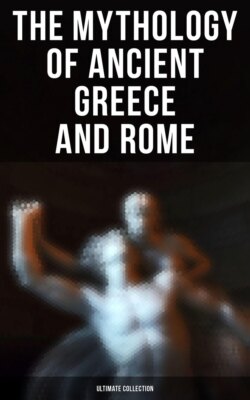Читать книгу The Mythology of Ancient Greece and Rome - Ultimate Collection - Homer - Страница 111
На сайте Литреса книга снята с продажи.
EXPLANATION.
ОглавлениеAgenor, on losing his daughter, commands his sons to go in search of her, and not to return till they have found her. The young princes, either unable to learn what was become of her, or, perhaps, being too weak to recover her out of the hands of the king of Crete, did not return to their father, but established themselves in different countries; Cadmus settling in Bœotia, Cilix in Cilicia, to which he gave his name, and Phœnix, as Hyginus tells us, remaining in Africa. Photius, quoting from Conon, the historian, informs us, that the hope of conquering some country in Europe, and establishing a colony there, was the true ground of the voyage of Cadmus.
Palæphatus, and other writers, say, that the Dragon which was killed by Cadmus was a king of the country, who was named Draco, and was a son of Mars: that his teeth were his subjects, who rallied again after their defeat, and that Cadmus put them all to the sword, except Chthonius, Udeus, Hyperenor, Pelor, and Echion, who became reconciled to him. Heraclitus, however, assures us, that Cadmus really did slay a serpent, which was very annoying to the Bœotian territory. Bochart and Le Clerc are of opinion that the Fable has the following foundation:—They say, that in the Phœnician language, the same word signifies either the teeth of a serpent, or short javelins, pointed with brass; that the word which signifies the number five likewise means an army; and that probably, from these circumstances, the Fable may have taken its rise. For the Greeks, in following the annals written in the Phœnician language, while writing the history of the founder of Thebes, instead of describing his soldiers as wearing helmets on their heads, with back and breast-plates, and with darts in their III. 131-132 hands pointed with brass, which equipment was then entirely novel in Greece, chose rather to follow the more wonderful version, and to say, that Cadmus had five companions produced from the teeth of a serpent; as, according to Bochart’s suggestion, the same Phœnician phrase may either signify a company of men sprung from the teeth of a serpent, or a company of men armed with brazen darts.
This conjecture is, perhaps, confirmed by a story related by Herodotus (book ii.), which resembles it very much. He tells us, that Psammeticus, king of Egypt, being driven to the marshy parts of his kingdom, sent to consult the oracle of Latona, which answered that he should be restored by brass men coming from the sea. At the time, this answer appeared to him entirely frivolous; but certain Ionian soldiers, being obliged, some years after, to retire to Egypt, and appearing on the shore with their weapons and armor, all of brass, those who perceived them ran immediately to inform the king, that men clad in brass were plundering the country. The prince then fully comprehended the meaning of the oracle, and making an alliance with them, recovered his throne by the assistance they gave him. These brass men come from the sea, and those sprung from the earth were soldiers who assisted Psammeticus and Cadmus in carrying out their objects. Bochart’s conjecture is strengthened by the fact, that Cadmus was either the inventor of the cuirass and javelin, or the first that brought them into Greece. Without inquiring further into the subject, we may conclude, that the men sprung from the earth, or the dragon’s teeth which were sown, were the people of the country, whom Cadmus found means to bring over to his interest; and that they first helped him to conquer his enemies, and then to build the citadel of Thebes, to ensure his future security. Apollodorus says that Cadmus, to expiate the slaughter of the dragon, was obliged to serve Mars a whole year; which year, containing eight of our years, it is not improbable that Cadmus rendered services for a long time to his new allies before he received any assistance from them.
